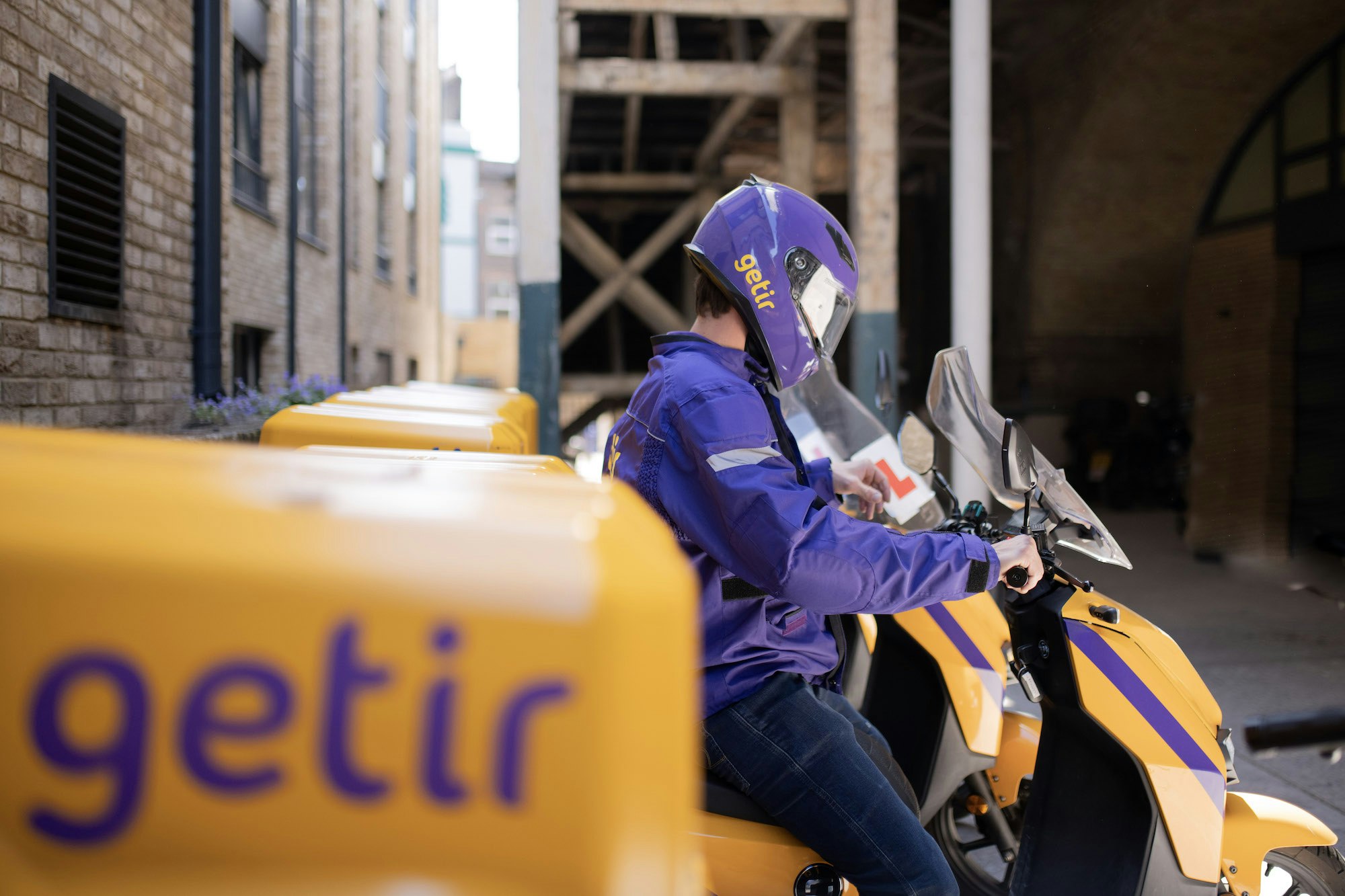Glovo is facing further legal trouble in Spain as sanctions mount over the employment status of its riders.
The Barcelona-based delivery unicorn, hailed as one of Spain’s startup successes, is under pressure to pay more than €205m to the country’s Labour Authority, which says Glovo has breached the law by not treating some of its delivery drivers as salaried employees.
In January, Spain’s high court suspended two payments worth a combined €64m as it ruled making Glovo pay would push it to an “extreme situation”. But in the same month, the Spanish Labour Authority issued a new fine to the company, showing its legal headaches are far from over.
A spokesperson for the delivery company told Sifted the latest fine refers to 49 delivery workers and the authority’s decision is “based only on the testimony of those couriers and not on an analysis of the current operational characteristics of the Glovo app in Spain”.
In a statement to Sifted, Glovo said the Labour Authority’s decisions “are not yet final and are currently under the revision of courts, following the appeals brought by Glovo”.
The company, which hit a billion-dollar valuation in 2019, reported losses of more than €420m in 2022 and €209m in 2023.
Regulatory headaches
The Spanish Labour Authority has requested Glovo pay the government hundreds of millions of Euros in unaccrued social security contributions. These, the body argues, are outlays the company would have had to pay if its Spain-based riders were provided with an employment contract — and include interest over delayed payments as well as other related costs.
These requested payments — which are being reviewed by the courts — concern rules that were in place in the country until 2021 that were then replaced by a piece of legislation called the ‘Riders’ law’. This granted gig delivery workers — such as those at Glovo — employee rights, placed tougher sanctions over non-compliance and imposed algorithmic transparency obligations.
A key feature of the legislation is that it places the burden of proof on the party that wishes to rebut the employment relationship. This means delivery platform riders are presumed to be employees and not freelancers, with the platform having to show that this is not the case.
Following the rulings and the introduction of the Riders’ law, Glovo has tweaked its delivery algorithm and hired some riders who were formerly working as freelancers.
However, the Spanish Labour Ministry told Sifted that the Spanish Labour Authority issued a new fine against Glovo last month, arguing it is breaching the Riders’ law.
“These proposals will be challenged by Glovo and reviewed in the judicial stage,” a spokesperson for Glovo said. “We are confident that our operating model launched in Spain in August 2021 meets all regulatory requirements.”
Luis Suárez, a lawyer specialised in labour and business law at SBO Abogados firm who represented a courier in the first case brought against Glovo by a rider in 2020, predicts the company will likely have to pay a large portion of the fines after lengthy legal battles that could last at least three more years.
“At this moment it [Glovo] has got many open fronts which, unless there’s a miracle, it is very likely to lose,” he says.
Glovo says it will appeal any disfavorable court ruling, but did not directly respond to Suárez’s comment.
‘Liquidity problems’
The exact amount Glovo may have to pay would be determined once the courts issue a final verdict, but Glovo’s parent company, the Berlin-based online takeaway food company Delivery Hero, estimated it may reach as much as €400m in August last year.
In its evidence to Spain’s high court, Glovo has cited “liquidity problems in the short-term” as one reason preventing it from paying. It argued that a recent fall in Delivery Hero’s share price has limited the support it could provide and that rising interest rates make it difficult for Glovo to access debt.
Glovo told judges that paying these amounts could damage the company, even if the Spanish court eventually rules in its favour and it recovers the money. This is because it would limit Glovo’s ability to use capital for other investments in the meantime.
Delivery Hero says it remains “committed to working with the Spanish government to find a solution that works for all the involved parties”.
During a call with investors on February 14, Delivery Hero’s chief financial officer Emmanuel Thomassin ruled out any big cash outflow related to Glovo this year, or any large investments into the Spanish unicorn. The German company has been setting aside money to satisfy the Spanish authorities’ request if it loses the battle in the courts.
Thomassin said he expects Glovo to be close to breaking even in the fourth quarter of this year. He added that Glovo’s finances are improving faster than what had been forecast.
Delivery Hero’s CEO Niklas Östberg sought to reassure investors of the company’s financial stability. Delivery Hero exited completely from Deliveroo in late January and engaged in unsuccessful talks to sell its Foodpanda business in southeast Asia following EU scrutiny over its acquisition of Glovo.
EU competition regulators raided Delivery Hero and Glovo’s offices twice last year as part of an investigation into market allocations, hiring practices and information sharing.
Reputational damage
Two Spanish officials told Sifted that Glovo’s reputation inside the country’s government has suffered as a result of these legal challenges.
Glovo did not directly respond to this claim.
Spain’s labour ministry has toughened up its public messages against online delivery platforms failing to comply with the Riders’ law, warning their leaders could face jail sentences of between six months and six years.
Jitse Groen, CEO of Just Eat, one of Glovo’s biggest competitors in Spain, said last month that the Spanish law “is very clear” and Glovo “will have to pay the fines” if it breaches it.
Days later, Groen responded to Glovo claiming it would go bankrupt if forced to pay. “Time for the Spanish courts to collect the Spanish taxpayers’ money,” he posted on the X platform.

In an interview with Startup Europe — The Sifted Podcast, Óscar Pierre, CEO and cofounder of Glovo, said his company employs freelance riders for some roles with a high degree of flexibility and independence. Meanwhile, couriers are employed with regular contracts for jobs with less flexibility (specifically those delivering groceries from Glovo’s micro-fulfillment centres).
Glovo, he adds, has a “waiting list” of people who want to work as freelance riders for the platform, while it struggles to find candidates for the salaried positions. Pierre and Glovo’s spokesperson declined to specify how many workers are working for the company in each category.
“We strongly believe that we are compliant [with the Riders’ law],” Pierre says.
‘Politicised’ debate
Pierre adds there’s a “big lack of information” among regulators “in most countries” and laments that the debate about regulating the online delivery industry has been politicised.
“The gig economy is one that has grown very fast,” he says. “I’m a big believer that it is one that needs better regulation to have a framework where companies can provide more benefits and more protection to couriers without walking into the employee relationship. Right now it is a very binary labour legal framework.”
One former investor in the company, who wished to remain anonymous, tells Sifted that heavy sanctions on Glovo wouldn’t just be bad for the company, but for the wider Spanish economy as it could harm “restaurants, riders and customers alike.”
In doing so, they argue, the government is pushing one of Spain’s most successful startups to the brink, putting the incomes of thousands of low-skilled, often migrant workers with poor Spanish language skills at risk, who they say would struggle to find a job elsewhere.
Two Spain-based investors with knowledge of the company speculate Glovo’s situation could lead to Delivery Hero selling the startup, even at a loss.
Glovo’s spokesperson said the company’s commitment to the Spanish market “remains firm.”
A spokesperson for Delivery Hero declined to comment on “market speculation” and said: “In line with our recent trading update, Glovo continues to be a driving force of our global business.”
Looking at Brussels
For the last couple of years, the EU has been in negotiations for a Platform Work Directive, aimed at setting clear rules across the bloc on the job status of food delivery riders and other gig economy workers.
The European Commission had proposed platform workers to be considered ordinary employees rather than self-employed if they meet certain criteria, including being banned from working for a competitor.
Policymakers had aimed to strike a deal on the directive by the end of this month, but last week four EU member states — Estonia, France, Germany and Greece — declined to support the proposal, casting doubt on the possibility of passing legislation before the European Parliament elections in early June.
Although the new legislation would not have any retroactive effects over Glovo’s court cases, it boosted hopes in the Spanish tech ecosystem of an end to the tensions between startups and national authorities across the EU as well as setting homogenous rules across the bloc.
Pierre says he is following the discussions for the EU directive on platform work “very closely”, and hopes it would simplify the operations of multinational companies like Glovo, present in 26 countries worldwide.



